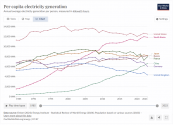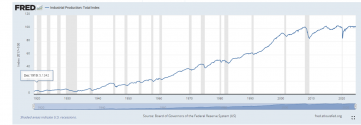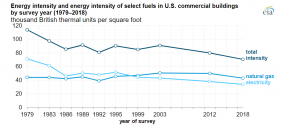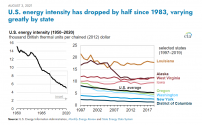Sorry, there is no amount of efficiency advantage and gains that can allow the US economy to be bigger than one that uses twice as much electricity or be able to match an economy that is growing usage at 7% every year while the US usage remains flat. You cannot grow an economy without a corresponding growth in the usage of electricity.
United States is a fully developed country that doesn't really have any massive projects going on. China is not.
And that's not an insult, but China has a lot more room to grow. 1.5 Billion people are going to need a lot more electricity and goods than 300 million people, and that's discounting the fact that China is also the world's factory, which again, means more electricity. Just using napkin math, China's electricity demand should be 5 times higher than United States', it's not close to that yet.
Any suggestion otherwise and you're onto magical thinking like a perpetual motion machine -- things just runs forever without adding new energy. Absolutely illiogical.
No, what's happening here is you're trying to use electricity demand as a proxy for GDP or economic growth. That's not what these metrics are, and if you want to engage in self-gratification you don't need proxies. You canssimply look at PPP charts where China is already larger than United States by a significant amount.
PPP is derived using the same numbers that so many people accuse United States of "faking".




